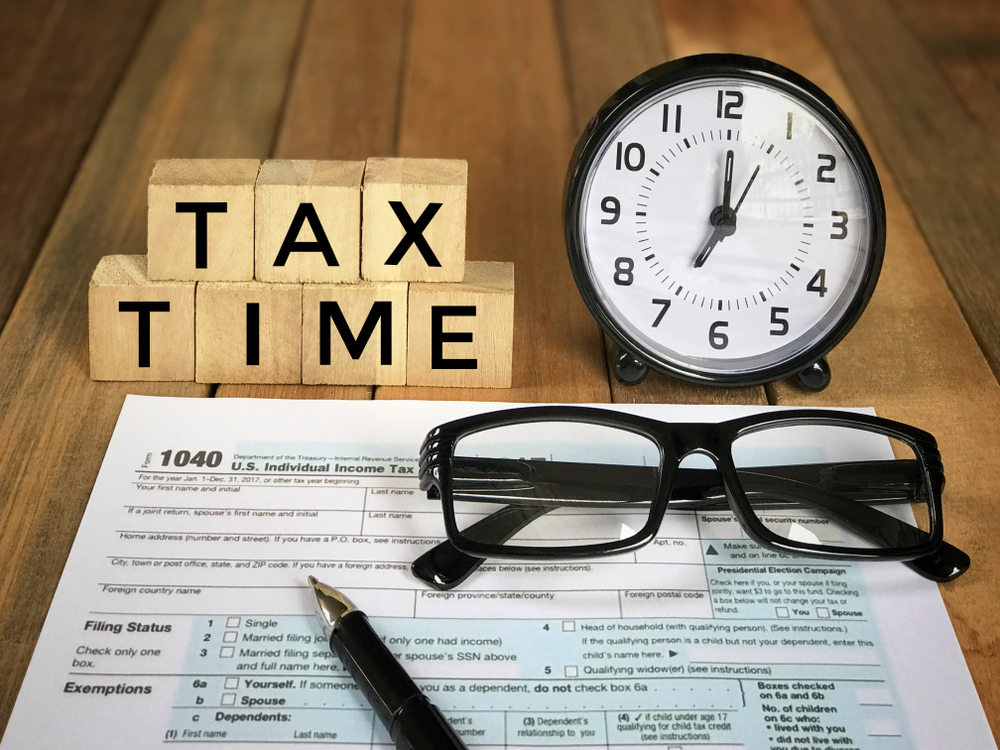
When you go in to meet with your local Cedar City accountant to discuss your business, there are many business-specific accounting terms that will be used. While our accountant is always happy to stop and explain an unknown term, you may feel more comfortable going into a business meeting with a firm understanding of accounting terms that apply to company operations.
While there are industry-specific terms, below are thirty accounting terms that all business owners should know.
General Accounting Terms
To start off, let’s lay the groundwork for other accounting terms by clarifying general accounting terms. Many of these terms are what business owners will encounter even before they start their company, so it is essential to understand what they mean.
1. Accountant
The term accountant often gets thrown around to describe anyone who deals with numbers. However, this loose definition isn’t quite sufficient.
While the exact requirements can vary to state-to-state, an accountant should have a four-year accounting degree from a higher education institute. They can act as bookkeepers, and with the right certifications, certified public accountants.
2. Accounting Period
An accounting period is a defined time span where all of a company’s financial statements—i.e., balance sheet, income statement, statement of cash flow—are included. By having accounting periods to reference, business owners can quickly find information on how the company financially performed during any set time.
3. Cash Flow
To describe the flow of cash in and out of a business, accountants use the term cash flow. The cash flow is tracked from the beginning of an accounting period and ends with the conclusion of the accounting period. A negative cash flow indicates a business had less money comes in than went out, while a positive cash flow shows the opposite.
4. Allocation
Allocation describes how businesses assign funds to different accounting periods or departments within the business.
5. General Ledger
A whole and complete financial record that keeps track of a business’ financial accounts. This ledger should be maintained on a daily basis, and it is used to help create financial statements.
6. Business Entity
The term business entity refers to the legal structure of your company. For most small business owners, these company formations are usually sole proprietor, limited liability corporation (LLC), or partnership. There are also s-corporations and corporations. Depending on what business entity applies to your company, there are different laws, compliance requirements, and tax ramifications.
7. GAAP
Generally Accepted Accounting Principles (GAAP) refers to the basic rules that all accountants follow as they perform their duties. These principals guide accountants so that it is easier for other financial experts to review a business’ financial records.
8. Fixed Cost
Businesses have fixed costs, which are costs which do not change no matter how many sales are made. An example of this would be the rent of a business’ location, which would be a recurring fixed cost. While the rent could be raised over time, it will remain fixed throughout the length of the rental contract.
9. Variable Cost
Opposite of fixed costs are variable costs, which are business operation costs that change with how many sales are made. An example of this would be something like the cost of deliveries. With fewer sales, the amount of business funds dedicated to delivering goods is lower, though costs will go up as more sales are made.
10. Overhead
A business’ overhead refers to the expense of operating a business and is often a fixed cost. That means that overhead often refers to things like business rent, employee salaries, inventory storage costs, and fixed costs.
11. Liquidity
For businesses, when it comes to liquidity, it is a measure of how quickly a business can absorb short-term and immediate financial obligations and debts.
12. Return On Investment
The strict definition of this term refers to the overall profit that a business makes—the return—which is divided by the business’ investment. However, ROI can also be used a bit more loosely to describe how successful short-term projects and objectives have been.
Profit And Loss Statement Terms
When it comes to your company’s profit and loss statement terms—also called income statement terms—you will likely encounter more of these words when using accounting services. To help you stay in the loop when discussing your business’ financial status, here are some of the most common profit and loss statement terms.
13. Income Statement
Let’s start by defining what an income statement is when applied to your business. This financial statement will cover the expenses, revenue, and business profits for a set period of time.
It starts by displaying the company revenue at the top of the statement, then the expenses are displayed to show how much was subtracted. That way, you have a clear idea of where the money was spent. Finally, the income statement displays the net income at the bottom of the report.
14. COGS
COGS—costs of goods sold—is used to refer to the expenses that relate to the creation of your business’ service or product. This term does not describe operating costs; rather, the labor involved in your business’ provided service or the cost of the materials used to make your product.
15. Gross Profit
The profitability of your business in terms of dollars is described by gross profit. This number is reached without taking into account the overhead costs but is subtracted the COGS from the revenue.
16. Gross Margin
After the gross profit has been assessed, the gross margin is next. The gross margin is a percentage of the gross profit. You find this percentage by taking the gross profit and dividing it by the revenue to find the gross margin.
17. Depreciation
This term describes the loss of asset value over time. It does not describe low-dollar value items. An example of a depreciable business asset would be a company van. A depreciating asset is often shown on an income statement as a non-cash expense as it doesn’t directly affect your business’ cash.
18. Net Income
The net income (NI) is the actual dollar amount of profit your business earned. You can find the net income by subtracting the expenses from the revenue for a set period. These expenses should include your taxes, overhead, depreciation, and COGS for that given period.
19. Net Margin
Another term for the profit of your business, the net margin is the percentage of profit as it relates to the revenue. The net margin is found by having the net income divided by the revenue for a set earning period.
20. Expense
When your company incurs a cost, the term for this is an expense.
21. Revenue
Simply put, any money that is earned by your company is considered revenue.
Bookkeeping Terms
Some of the accounting terms that you will run into regularly as a business owner are bookkeeping terms. Many of these terms describe financial matters that concern the day-to-day operations of your company, so it is critical that you understand them.
22. Balance Sheet
A balance sheet is a term that encompasses your business’ financial report that shows all the liabilities, equity, and assets your business has currently. This report shows the balance of this equation: Assets = (Liabilities + Equity).
23. Accounts Payable
This term describes all of the business’ expenses that have not been paid yet. On a balance sheet, account payable is listed as a liability, since the business owes others.
24. Accounts Receivable
To describe the revenue of a business has but hasn’t received the payment, you would use the term accounts receivable. On a balance sheet, accounts receivable is listed as an asset that should become cash soon.
25. Payroll
Considered a standard business liability, payroll is an account that displays the payment of employee wages, salaries, deductions, and bonuses. On the balance sheet, you may see if there are any unpaid wages or accrued paid vacation time.
26. Inventory
A business asset that is meant to be sold to customers is considered inventory. Once inventory items are sold, the account tracking the inventory assets will lower so that businesses can track when they need to restock.
27. Asset
An asset is a term used to define the things owned by the company which hold monetary value. When you see your assets listed, they will be in order of liquidity, with assets like cash as the most liquid, to difficult to dispose of assets like a building being one of the least liquid.
28. Book Value
While you may have depreciating assets—like the example company van—there is a term to describe the original value of that asset, which is when the term book value is used.
29. Liability
A business financial liability refers to the unpaid debts that a company has accrued. Often, your business liabilities will be things like business loans, accounts payable, and payroll.
30. Equity
After the liabilities have been subtracted from the assets of your business, the leftover value is called the equity.
To start working with our accountant concerning your business accounting needs, contact us today to set up a consultation. He will provide you with a tailored accounting plan that will suit the unique needs of your business.













